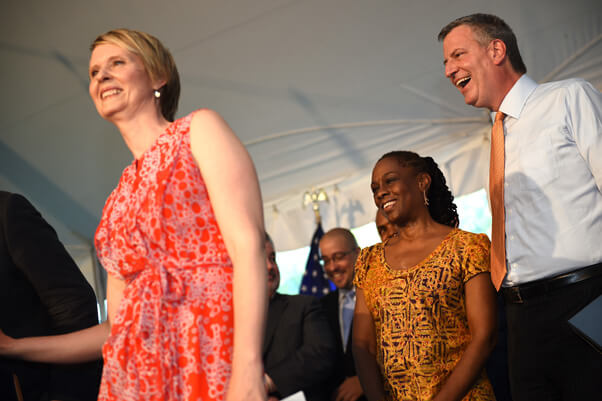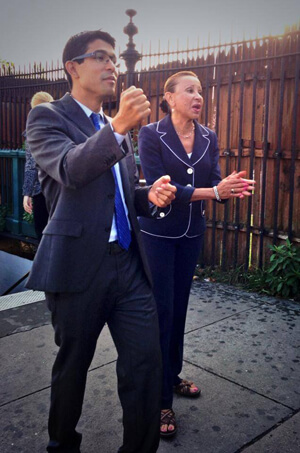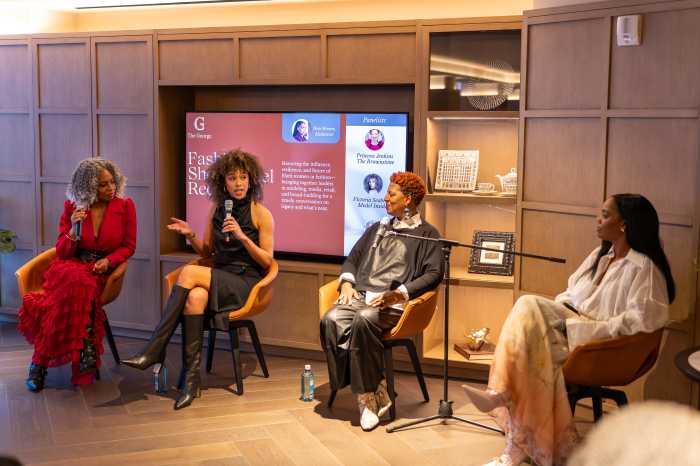Bill de Blasio is showing a remarkable immunity to charges he is too far to the left.
In part, his success can be traced to Occupy Wall Street, which put income redistribution and the progressive economics the Democratic mayoral nominee emphasizes on the political map. Also, Joe Lhota, the Republican candidate, is a political novice and having trouble pinpointing the political arguments that help him and hurt de Blasio.
But a stronger reason is de Blasio’s remarkable campaign. Despite media speculation that the primary signifies a decline in identity politics, it is more likely the winner had a clearer understanding of the political identity of LGBT and other voting groups than did his rivals and had figured out how to tap into the values of a broad swath of Democrats.
Ken Sherrill, a political scientist who has studied how coming out as LGBT impacts political beliefs, disputes the conclusion that the primary showed a weakening of identity politics ––most commonly understood as African Americans voting for African Americans, women for women, and gays for gays. He argues that this definition of identity is flawed. Being black is more than being born with dark skin; a feminist is someone different than simply a woman. Sarah Palin is a woman, but she is not a feminist, and being a member of the LGBT electorate means more than simply having same-sex attraction.
The primary didn’t signal an end to identity politics, said Sherrill in a phone interview. He pointed out that “a whole package of ideals and values goes with identity — a sense of right and wrong.” De Blasio “came closer to the values associated with feminism and values characteristic of LGBT people,” he said.
LGBT voters are “one of the farthest to the left of almost any groups in the electorate,” he explained. On issues that have “absolutely nothing to do with gay rights,” like being asked to choose between jobs and the environment, their views are more to the left “than traditional members of the Democratic coalition.”
New members of the LGBT community don’t inherit their politics.
“You’re not raised in a family that teaches LGBT values,” observed the retired Hunter College professor. LGBT identity leads many to break with the political views of their parents and their hometowns. They often move far from home to places like New York City. Thus, New York Democrats have a constant influx of new voters from across the nation.
These voters care about LGBT issues but they believe that other issues are important as well. They care about the economy (creating more jobs), healthcare (enacting a single-payer system), the environment (protecting it), and racism (ending stop and frisk). They are typically active citizens with a left perspective, which they believe advances civic virtue.
Sherrill’s LGBT voter profile emphasizes considerably different attributes than the snapshots offered by public health surveys, where the community is cast as at greater risk for mental illness, depression, and more dangerous alcohol and drug use behaviors than the rest of the population.
Sherrill believes the political profile de Blasio sketched in his campaign is why he got more LGBT votes than Christine Quinn and as many black votes as Bill Thompson. The Democratic nominee used no direct mail, instead focusing his campaign on the TV audience. His signature ad featured his son giving him an enthusiastic endorsement as the only candidate with the “guts to break with the Bloomberg administration.” Dante, the Italian-named mixed-race teenager with an enormous Afro, narrates the ad, promising his dad would do more for affordable housing, tax the rich to fund pre-K education, and end stop and frisk. De Blasio, he said, would be a mayor for every New Yorker no matter “where they live and what they look like.” De Blasio’s family came across as modern, attractive, and friendly, and the ad touched core values of Democratic Primary voters.
De Blasio’s success among LGBT voters –– where he snared 47 percent of the total, versus 34 percent for Quinn –– affirmed that the community favored the most viable candidate on the left. His strength among African Americans challenged a key assumption made by those demanding the toughest law and order measures in the city. Leaders in black communities often endorse strict anti-crime measures to crack down on guns, muggers, and robbers in their neighborhoods. Police unions endorsed Bill Thompson, the African-American candidate, while de Blasio personalized his opposition to stop and frisk –– saying, in effect, “I don’t want my son stopped because of racial profiling.” The diverse coalition against stop and frisk had wrought a change in attitudes, one that emphasized the need for police to treat youth of color as though they were in fact innocent until proven guilty. That was a powerful message.
De Blasio’s proposal to raise the income tax on city residents making more than $500,000 a year seemed eminently fair to Democratic voters. In the general election, voters will be less progressive as a whole, but so far Lhota has not shown any skill in turning de Blasio’s positives into negatives. And time is short. Unless he can quickly demonstrate instincts at engaging voters comparable to de Blasio’s, he will receive little financial support and tepid public support. After 20 years, New York City will be Democratic again –– likely with a landslide victory.




































